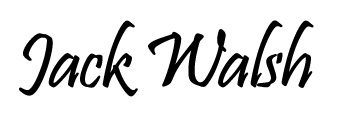A Lifetime of Fishing – Excerpt
It is hard to understand how strict the factories were in those days. Their fish was their fish, for the reduction plant, and there was an agreement between them that it would never be sold for anything else. I had a standing order with a new fishing company in Cape Town, which was catching long line tuna, for 25 tons of maasbanker for bait, because I owned a small purse seine vessel. Before Janine went aground, I had only once been able to catch and deliver between 10 and 15 tons to them for R200 per ton. The factory only paid us about R30, but whatever we caught with a quota-controlled vessel had to go to them. For the last few years, the maasbanker had all but disappeared and were only found by the large vessels in quantities worth catching once or twice a year. They also normally lay too deep for Janine’s little net, and, if we caught anything, it we would only be a few tons off the top of the shoals.
In the past, I had frequently approached all the factory managers at St Helena, including my own factory where I was contracted, but never once had they shown any sign of deviating from their rule, not even when it was from my own boat, the Jenny Lee! However, the snoek season was approaching and maybe I would make a few rand in that way. Also, as soon as the Janine was finished, I would sell her immediately and pay for the repairs, and maybe there would be something left over. I also seriously began to think I must insist to Piet van der Merwe, my skipper, that I should come out on the Jenny Lee with him as mate. I knew he would resent this, as Dirk, his cousin and a totally useless individual, presently enjoyed that privilege.
One night, we went to bed totally demoralised. We had not even had bread to eat for supper and we were getting thinner by the day. The pilchards and anchovy were scarce and the big boat was running all the way down to Cape Point or Robben Island for very little. Augé, Columbine’s manager, who had become a close friend of ours, had suggested that Piet should take me on as mate, and, probably as a result, Piet had told me that he was looking for another job. I awoke at midnight for some unknown reason, looked out of our front window, and saw 20 fishing and deck lights flashing in the vicinity of the ‘Groan’, an area of vicious rocky banks in the middle of the bay.
In bygone years, the maasbanker shoals always came and collected on the reefs of this area several times every season, and, because the vessels and their nets were much smaller and shallower in those days, they were not difficult to catch despite the fact that the area consisted of solid reef.
Watching the lights of the working boats, I realised that the maas- banker must have paid an unexpected visit to this area again, and that they, in a poor season, had been taking the chance to throw in the shallow water and on the reef in the hope that they wouldn’t damage their nets too badly. Suddenly, I knew with crystal clarity that somebody would let me have some maasbanker the next day, and I went back to bed praying that my premonition would be correct. At 4am, from the most unlikely factory, Suid Oranje, in the person of Jimmy Loundes, I received the phone call.
Maasbanker, due to their nature, work more slowly and difficultly than the softer pilchards and anchovies. Jimmy told me that they had a problem with one boiler and their boats were coming in with huge loads, and, under the circumstances, if I got trucks there by seven in the morning, he would allow me to take 15 tons off the decks of two of their vessels, as they did not expect to have the factory working before three o’clock. I managed to make contact with the company in Cape Town, which confirmed they needed the fish, but said that, as their truck was out of order, I should arrange for a local contractor and they would pay me R240 a ton, instead of the normal R200.
The local contractor agreed to R20 per ton and duly appeared at seven o’clock with two trucks capable of carrying 15 tons. After they had loaded, I went to thank Jimmy, who told me that, if I could get the trucks back before twelve o’clock, I could take another two loads. Seven thousand, two hundred rand put me back on my feet again and I never looked back. If my belief in miracles was somewhat questionable at the time, it was reinforced forever, and it was not the last that I was to enjoy that year, let alone in my life. By that night, the maasbanker had once again disappeared and it was the last really large catch recorded in St Helena Bay.
To purchase A Lifetime of Fishing, either in book format or digital download, click here…

There are no comments